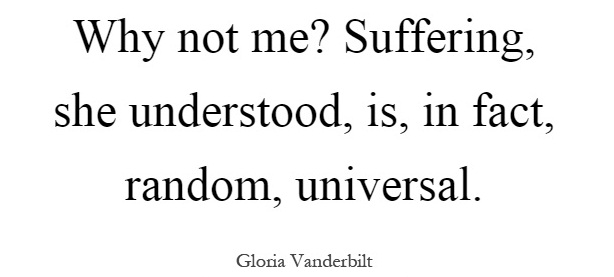Anattà means `no self' and the doctrine of anattà is the Buddha's most unique and radical teaching. We usually assume that beyond our changing body, mind and experience is an unchanging and unique ego or self. Having identified this self as `me' we then identify other things as `mine'; `My spouse', `My property', `My religion', `My country', etc.
This, according to the Buddha, is the cause of much of the distress and pain humans inflict upon themselves and others through greed, fear, ignorance, hatred and self-deception.
The Buddha said: `Body is not self, feelings are not self, perception is not self, mental constructs are not self and consciousness is not self. When one sees this, one becomes detached from these things, being detached, the passions fade, when the passions have faded one is free, and being free, one knows one is free'.
 |
| Having identified this self as `me' we then identify other things as `mine' |
It is sometimes said that the purpose of Buddhism is to destroy the self. This is not correct simply because there is no self to destroy.
The Buddha taught that when the idea of a permanent metaphysical self or soul is seen to be an illusion, then one will cease to suffer and also cease to inflict suffering on others.
The Neuroscience of Anatta & Buddhism
Neuroscientists have verified the Buddhist belief of Not-Self. This post from Big Think delves into the meaning of what Buddhism calls the doctrine of ‘Anatta’.
Evan Thompson of the University of British Columbia has verified the Buddhist belief of anatta, or not-self. Neuroscience has been interested in Buddhism since the late 1980s, when the Mind and Life Institute was created by HH Dalai Lama and a team of scientists. The science that came out of those first studies gave validation to what monks have known for years — if you train your mind, you can change your brain. As neuroscience has begun studying the mind, they have looked to those who have mastered the mind.
While Buddha didn’t teach anatta to lay people, thinking it might be too confusing, the concept is centered on the idea that there is no consistent self. The belief that we are the same one moment to the next, or one year to the next, is a delusion. Thompson says that “the brain and body is constantly in flux. There is nothing that corresponds to the sense that there’s an unchanging self.”
When there is no consistent self, it means that we don’t have to take everything so personally.
It is useful to look at a video of yourself from the past, or read something you wrote years ago. Your interests, perspective, beliefs, attachments, relationships, et al, have all changed in some way. Anatta doesn’t mean there’s no you; it just means that you are constantly changing, constantly evolving, and shape-shifting. Why is this important? Why does it matter if there’s no solid “you” or “me”?
Dr. Rick Hanson, author of Hardwiring Happiness and Buddha’s Brain, argues that when there is no consistent self, it means that we don’t have to take everything so personally. That is, our internal thoughts are only thoughts and don’t define us. External events are only external events and aren’t happening to us personally. Or as Tara Brach says, our thoughts are “real, but not true.”
There is tremendous liberation in not identifying ourselves with thoughts, or a set idea of who we are. There is then hope that we can overcome our vices or bad habits (of mind and body), because if we aren’t stuck with the self-limiting beliefs inherent with a consistent self, we may orient ourselves toward becoming more of who we want to be.
As science and Eastern thought continue to hang out with each other, there may be more 21st Century studies to back up 2,600-year-old thoughts. But, as HH Dalai Lama said, “Suppose that something is definitely proven through scientific investigation. … Suppose that fact is incompatible with Buddhist theory. There is no doubt that we must accept the result of the scientific research.”
Hearing a pro-science stance from a religious leader is a relief to many. In the end it seems Buddhism and neuroscience have similar goals: What is this thing we call the mind, and how can we use it to make ourselves a little less miserable and a little happier?
Maybe even just 10 percent happier, as Dan Harris wrote. If there is no consistent self, it is at least my intention that my ever-changing self be clam and, well, 10 percent happier. No matter who I am.











































